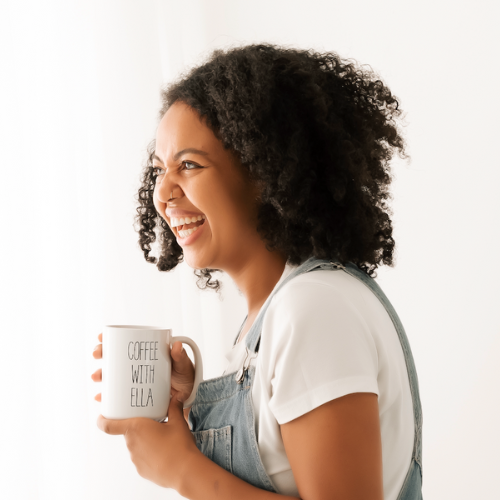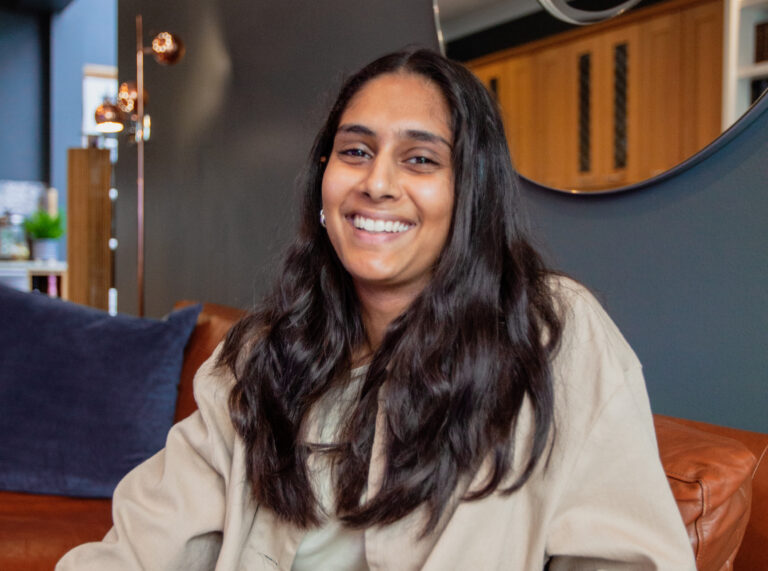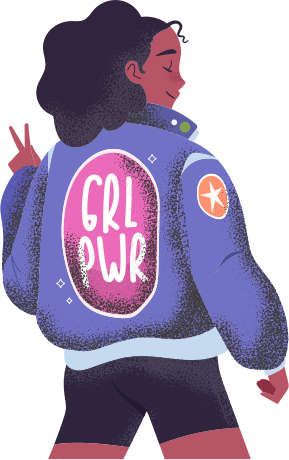By Ella Schwarz from Coffee With Ella
When someone calls my daughter a good girl, something in me flinches.
They mean it kindly, of course they do. It’s the universal phrase we’ve been taught to offer little girls as praise. But somewhere deep in my body, it lands like a warning.
Because I know what being “good” once cost me — and I never want her to have to spend years, or even decades, unlearning what I’ve had to.
The Currency of Goodness
So many of us — women of colour especially — were raised to be good.
Good daughters.
Good colleagues.
Good wives.
Good friends.
We learned to read the room before we even knew how to read.
We learned that composure was safety, that ambition should sound humble, that success meant doing the right things in the right order — without ever being too loud, too opinionated or simply put, too much.
And for a while, it works.
We build the degrees, the careers, the homes, the relationships — the lives that look like proof we’ve done it right. We become dependable. Capable. Respectable.
We become everything the world told us we should be.
Until one day, the whisper we’ve been ignoring turns into a shout — going from a barely audible whisper to the kind of roar that shakes the foundations of everything we built our sense of success on.
Because being good starts to feel expensive when it costs you your joy.
The Hidden Tax
Here’s the thing: “goodness” has always been a survival strategy. Especially for us.
For our mothers and grandmothers, goodness often meant safety. It was the shield that kept them employable, acceptable, respectable — even when the world refused to see their full humanity.
But what happens when the shield starts cutting into your skin? Or when the performance of goodness — the keeping it all together, the being easy to work with, the smiling through it — becomes its own kind of cage?
We wake up exhausted.
Not just from work or motherhood or endless to-do lists but from the emotional labour of managing everyone else’s comfort before our own.
That weight sits on our chests in ways that are hard to name, so we swallow those words whole — and in doing so, starve the parts of ourselves that were made for more.
And the cost?
Our creativity.
Our rest.
Our softness.
Our sense of self.
The Unlearning
What if rather than contorting yourself into a blueprint of success designed without you in mind, the real work is learning to be something truer than good?
What if it’s remembering that we were never meant to be palatable in systems that profit from our silence; that we were meant to be whole?
The work is to feel at home in our own skin again — to show our daughters, our peers, ourselves that goodness was never the goal — authenticity is.
And the ease that comes with that isn’t laziness.
Boundaries aren’t rejection.
Saying no isn’t unkind; it’s a sacred yes to ourselves.
Because Future You — the one who’s stopped auditioning for worthiness in a play that was never written for her — she’s already living this.
She’s the version of you who no longer trades authenticity for approval. Who trusts her own timing. Who doesn’t need to shrink herself to be loved or contain herself to be valued.
She’s already here — and she’s waiting for you to remember that goodness was never the point.
Freedom was.
The Reclaiming
And here’s the secret no one tells you: on the other side of being “good” isn’t chaos — it’s life in colour.
It’s saying what you actually mean — and realising the world doesn’t fall apart.
It’s dancing in your kitchen on a Tuesday because you finally have energy to spare.
It’s posting the poem or starting the thing you’ve talked yourself out of a hundred times.
It’s choosing a slower weekend over rushed obligation — and feeling your nervous system exhale.
It’s money earned in ways that light you up, relationships that feel mutual and boundaries that hold without guilt.
It’s knowing your worth without having to prove it every minute of the day.
Because you get to be creative with how you live your life.
Creativity isn’t just what we do. It’s the way we move through life when we trust ourselves enough to paint outside the lines.
When we live like that, life itself becomes the canvas — every conversation, choice and pause a brushstroke of who we’re becoming.
And the beauty is, we get to start again as many times as it takes.
When I look at my daughter, I see that possibility.
I see the evolution of a lineage — a woman who won’t have to unlearn as much as I did. A girl who will grow up knowing that her voice isn’t too much, her dreams aren’t unrealistic and her softness isn’t a weakness — it’s the source of her power.
Time To Check In
So before I close, I’ve got some questions for you.
Take a breath. Then, hand on heart, ask yourself — not from guilt, but from curiosity:
What’s being “good” costing me right now?
Where am I still over-giving, over-explaining or over-performing just to feel safe?
And what would it look like to let myself be true instead of good?
Because the world doesn’t need more good girls.
It’s crying out for women who are whole.
Women who know their power and their peace can coexist.
Women who rest and rise, who cry and create, who refuse to perform perfection just to be seen.
That’s where the revolution is — not in rebellion for rebellion’s sake but in the quiet decision to live life on your own terms.
You’re allowed to take up space.
You’re allowed to be seen.
You’re allowed to be free.
And Future You?
She’s right there whispering, welcome home.




